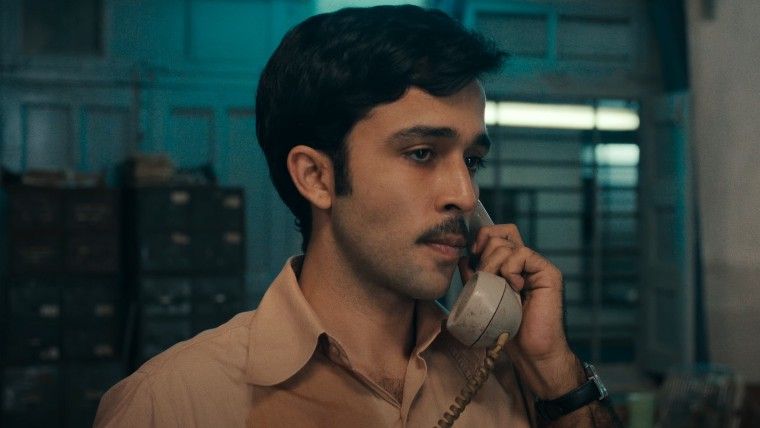
Title: Black Warrant
Directors: Vikramaditya Motwane, Ambeicka Pandit, Arkesh Ajay, Rohin Raveendran, Satyanshu Singh
Cast: Zahan Kapoor, Rahul Bhat, Paramvir Singh Cheema, Anurag Thakur
Where to watch: On Netflix
Rating: ****
This seven-episode non-fiction series based on the eponymous book by Sunil Gupta and Sunetra Chowdhury, peels back the layers of one of India’s most infamous institutions: Tihar Jail. This so-called “human refuge centre” becomes the epicentre of a gripping narrative that straddles bureaucracy, crime, and morality. What begins as a treatise on the “black warrants”—death penalty notices edged in ominous black borders—quickly transforms into a broader exploration of a high-profile prison’s rotting innards.
Told primarily from the perspective of Sunil Kumar Gupta, Assistant Superintendent of Police (Zahan Kapoor), the series follows his initiation into Tihar and his encounters with its grim ecosystem. The narrative juxtaposes Gupta’s honest intentions against a backdrop of systemic corruption, where gang leaders like Sunny Tyagi, Anil Rana, and Surtej Singh operate with impunity under the police’s tacit watch. The result? It is a quasi-legal empire where gang loyalties are currency, and humanity often feels like collateral damage.
Directorial precision ensures that the series never feels like a documentary lecture. Instead, its non-linear storytelling immerses viewers in the volatile prison environment, with palpable tension in every atmospheric frame. From the haunting corridors to the detailed period styling—reminiscent of 1973 to 1989—the production values elevate this gritty tale. The cinematography deserves a special mention for its ability to juxtapose claustrophobia with fleeting moments of poignancy. Indeed, the three Punjabi songs, soulful and effectively picturized, feel almost like acts of defiance against the pervasive gloom.
At the heart of the narrative lies Gupta’s ideological clash with his peers and superiors. Zahan Kapoor’s understated performance is the linchpin of the series. He portrays Gupta’s moral dilemmas with a subtlety that eschews melodrama. Rahul Bhatt as DSP Rajesh Tomar—the cynical senior who warns, “Don’t trust anybody”—brings gravitas to his role, embodying a system that thrives on mistrust and pragmatism. Paramvir Cheema and Anurag Thakur’s portrayals of ASPs Mangat and Dahiya add layers to the buddy-bonding dynamics. At the same time, Rajendra Gupta, in his brief role as the prison accountant Saini, leaves an indelible impression.
The series’ pacing is generally intensely focused, balancing moments of romance and buddy-bonding subplots with the grim urgency of the main storyline. The graphic depictions of hangings and detailed discussions on executions might unsettle some viewers, but they are integral to the narrative’s unflinching honesty.
The series balances its critique of systemic corruption with a humane portrayal of its characters. The directors’ and the writers' attempt to inject humanity into Tihar’s cut-throat, inhuman atmosphere, serves as the moral backbone of the series. Yet, the overarching narrative refuses to indulge in easy resolutions. Tihar remains an allegory for a larger societal malaise, where rot is not confined to prison walls.
In its intensity and craft, the series succeeds as a gripping tale of crime and conscience. But it also poses an uncomfortable question: when humanity is shackled by bureaucracy and power, who holds the key to its redemption? There is more to the tale, and the audience eagerly anticipates what season 2 might uncover.